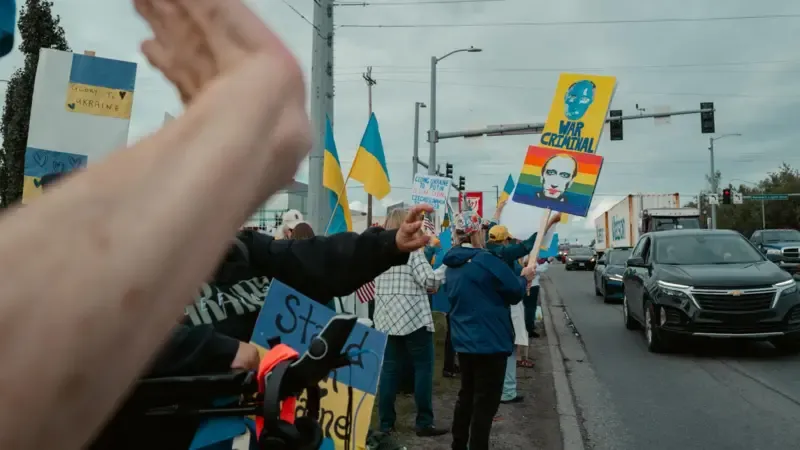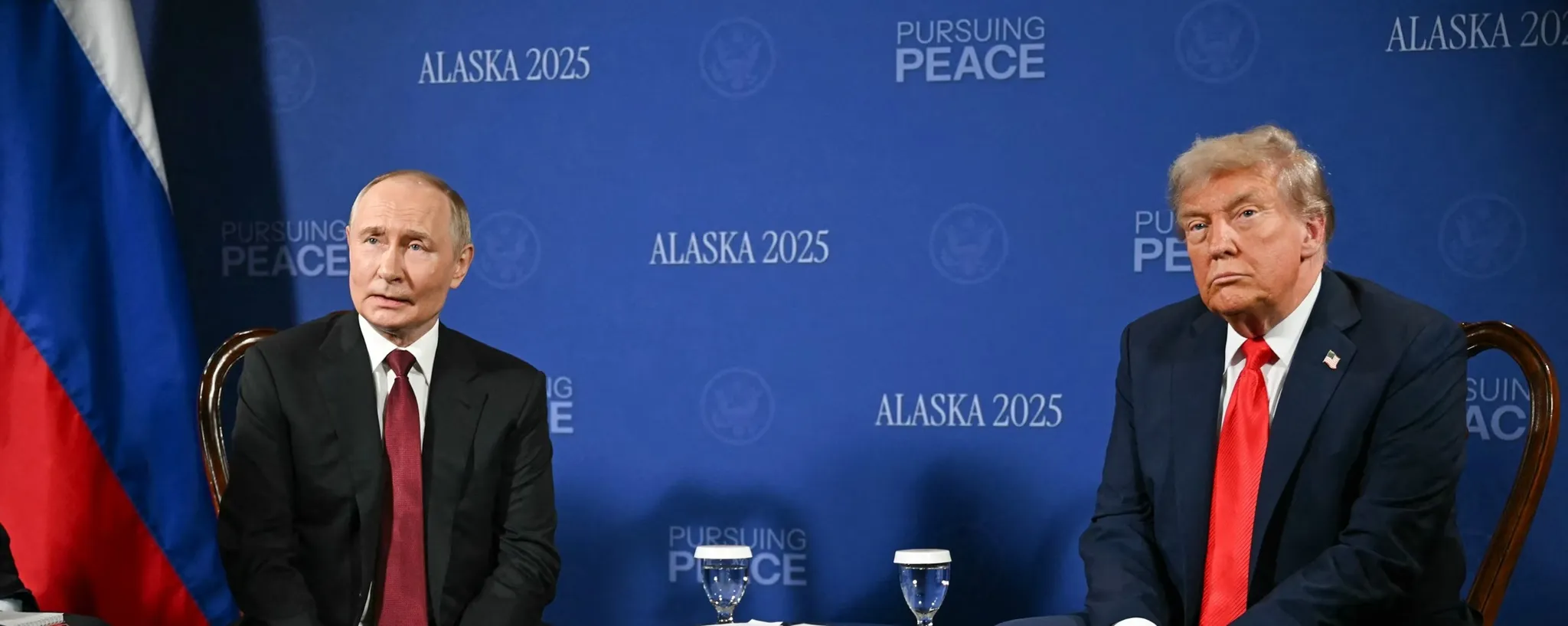In the cold winds of Alaska, a state that once belonged to the Russian Empire until its sale to the United States in 1867 for a measly $7.2 million — a deal Russians still refer to as the "sale of the century" — the two most influential world leaders have begun negotiations that could determine the future not only of Ukraine but of the global order itself. Donald Trump, the U.S. President known for his unpredictability and business-driven approach to diplomacy, and Vladimir Putin, the Kremlin autocrat who has been ruling Russia for a quarter of a century, met in Anchorage to discuss the war in Ukraine. This summit, announced less than a week ago, has already sparked a wave of speculation: will it be a real breakthrough or just another tactical maneuver by Moscow?
As an experienced correspondent for The New York Times, who has covered numerous summits — from Helsinki 2018, where Trump and Putin attempted to "reset" relations, to earlier meetings between Reagan and Gorbachev — I can say that the atmosphere here is charged with tension akin to the Cold War, but with a modern taste of geopolitical pragmatism. Around 22:10 Kyiv time, both leaders alighted from their planes — Trump from Air Force One, Putin from Il-96 — and together headed in the U.S. presidential limousine toward the negotiations site. This gesture, seemingly simple but symbolic: Trump, as host, invites the guest onto his territory, emphasizing American dominance.
The talks began in a limited "three-on-three" format, a classic approach for such meetings where each side seeks to minimize leaks. On the Russian side — Putin, his long-time aide Yuri Ushakov, a master of behind-the-scenes diplomacy, and Sergei Lavrov, the veteran Foreign Minister whose sharp comments often set the tone for Kremlin rhetoric. The American delegation includes Trump, his advisor Stephen Vitekov — a real estate businessman close to Trump since his New York days — and Secretary of State Marco Rubio, a Cuba-American hawk known for his tough stance against authoritarian regimes. This line-up underscores Trump’s business-oriented mindset: as insiders in Washington whispered to me, the president sees in Putin not only a geopolitical rival but also a potential partner for deals similar to those he made in real estate.
Before flying out, Trump, as always, couldn’t resist communicating with the press aboard Air Force One — a tradition he revived after Biden. His words were convincing but ambiguous: he confirmed he would discuss "territorial exchanges" between Russia and Ukraine but emphasized that he would "allow Ukraine to make that decision." "I think they will make the right decision. But I am not here to negotiate for Ukraine. I am here to put them at the negotiating table," Trump said, adding a dramatic flair. He recalled that Putin "really wanted to seize all of Ukraine," and boasted: "If I weren’t President, he would be trying to do it right now." These phrases, with their self-confidence, resemble Trump’s rhetoric from his first term, when he positioned himself as "the great dealmaker." At the same time, he noted "many businessmen" in the Russian delegation: "I like that they want to do business, but they won’t do it until we end the war." This hints at potential deals in the Arctic or energy sectors, which Russian officials have been discussing for weeks, attempting to separate business from politics.
Meanwhile, Putin made an unexpected stop in Magadan — a remote port city in Russia’s Far East, known as a former center of Stalin's GULAG labor camps where millions suffered repression. This choice is no accident: my sources in Moscow say Putin often uses such visits for internal propaganda, emphasizing Russia's "revival." He visited Russia’s first omega-3 fish oil capsule factory, a symbol of economic diversification, a sports complex, and laid flowers at a memorial to Soviet and American pilots from Lend-Lease during WWII. This gesture aimed at Trump, reminding of the historical cooperation between the two countries against a common enemy.
The main topic of the summit, undoubtedly, is the war in Ukraine, which has been ongoing for over three years and has claimed hundreds of thousands of lives. But as The Wall Street Journal reports, the Kremlin hopes not so much for peace as for escaping international isolation and "resetting" relations. Russian advisers like Kirill Dmytriev state: "The dialogue between Trump and Putin will bring hope, peace, and global security. Neoconservatives and other war fomenters will be dissatisfied." Former ambassador Oleksandr Yakovenko goes further, describing the settlement in Ukraine as a "secondary issue" — merely a "hindrance to normalization."
Western diplomats and Russian analysts I spoke with are convinced: Putin believes in his victory on the front, especially after cuts in American aid to Kyiv. Abkhaz Gallyamov, a former Putin speechwriter, shared an insight: "To avoid conflict with Trump, Putin may agree to minor concessions, but he has no intention of ending the war." The ideal scenario for Moscow is to separate Ukraine from broader relations: to talk about the Arctic, energy, and infrastructure, ignoring Kyiv. The very fact that the summit is taking place on American soil is a diplomatic triumph for Putin, who has been persona non grata in the West for years. Analysts suggest he might offer a limited ceasefire in the air to stop Ukrainian strikes on Russian infrastructure, but this would be tactical, not strategic.
In Anchorage, where Trump won the election by a wide margin, the atmosphere is ambivalent. As my BBC colleague Miroslava Petsa reports, the city is filled with yellow and blue symbols: Ukrainian flags on balconies, cars, and even windows. "He’ll just hand Alaska over to Russia," joked one pilot at the airport, but the laughter was nervous. Pro-Ukrainian protests gather crowds demanding the return of deported children and apologizing for the "ineffective" U.S. policies. This state, with its conservative values of freedom and democracy, sees Ukraine as a symbol of resistance against authoritarianism. Security at an unprecedented level — the last leaders’ summit here was 40 years ago — but former mayor Mark Begich warns of spying risks from a Russian aircraft.

This summit could become a turning point or just another disappointment. As history shows, negotiations with Putin rarely end with compromises without hidden motives. For Ukraine, fighting for survival, the stakes are high: will Trump be a protector or a dealmaker? The world watches with concern, hoping for peace but prepared for new conflicts.


